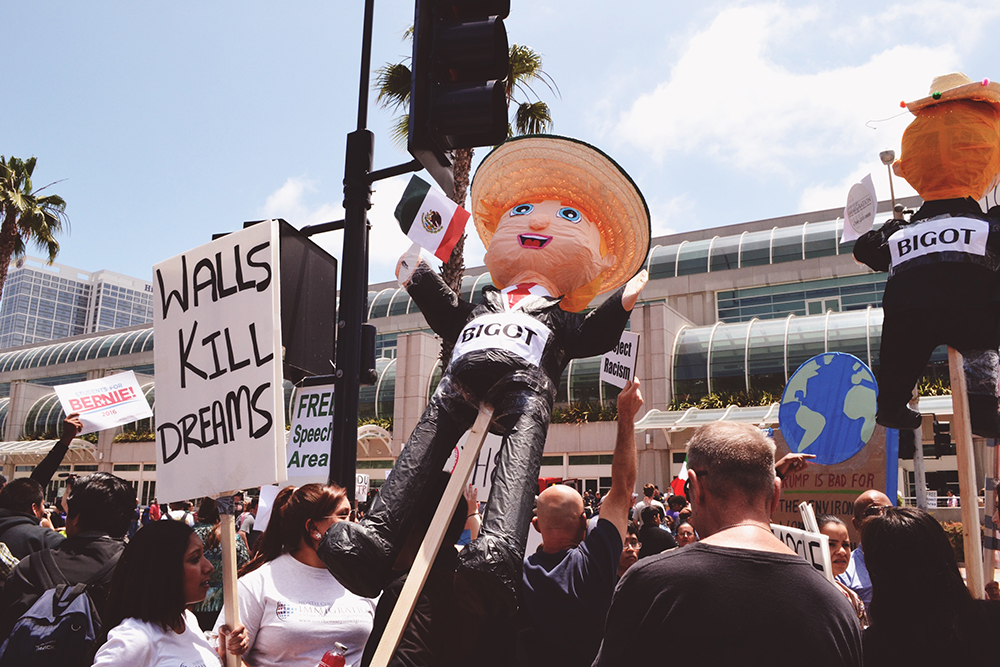With the victory of President-elect Donald Trump on election day, emotions rampantly flew across this nation. Some became overjoyed, while others feared for their lives. Protests broke out in almost every major city in reaction to Trump’s win. If the protests do not become violent like some have, these protesters have the right to speak about their perceived injustice, no matter what the public thinks of them.
Protesting the idea, not the position
Even though anti-Trump protestors do not like the outcome of the election, it seems they seek to protest the idea of Trump becoming president rather than trying to take him out of office before he assumes his position. They fear the America he created, and want to create a paradigm shift across many of his policies. Some protesters want to take action by reforming the electoral vote, but that idea seems far-fetched. Trump’s possible indictment in his Trump University or rape cases, or both, can only void his win. Most protesters understand this man will become president in January, much to their visible discontent.
I fear, though, the media pundits and people of the baby boomer generation that tell these protesters to grow up, move on and accept the results. The ones who use the “crybaby millennial” thought process as a cop-out. They argue all the “crying” and “whining” of this generation proves their point of the entitled “participation trophy” generation. These words contain empty meaning.
A yearning for change
People of older generations, and some in the millennial era, complain about how this generation clings to the participation trophy mentality. This generation wants change, not a trophy. They adhere to the belief instilled by their parents and those before them that anything can happen if they believe hard enough. Millennials did not want to have the label of a participation trophy generation. This generation did not willfully create this mentality. Their parents did. People do not learn these values from nothing.
Protesting in the name of injustice should not come as a surprise to many. People fought against injustice often in the ‘60s and ‘70s during the Civil Rights movement and Vietnam War. The civil rights movement of the 1960s faced widespread public disapproval that greatly held back the movement. A Gallup poll conducted on May 1961 found that 61 percent of the group surveyed disapproved of the Freedom Riders movement and 57 percent of them thought protests such as lunch sit-ins hurt the possibility for integration in the South.
A backwards rhetoric
Telling these protesters to grow up and accept the results suggests a backwards rhetoric. Many Republicans signed a petition to secede from the nation when President Obama won the 2008 election. Protesters do not wish to cry for no reason. These protesters do not represent the myth of the participation trophy generation known as the millennials. Clearly, a lot of people seem to have difficulty accepting results, however, the American people will not stand silent in the face of hateful words.
Under the first amendment, these protestors have the right to walk the streets peacefully. I agree with the popular sentiment that these protests should not contain violence. People should never resort to violence. Other than violence, though, they can protest nonviolently as much as they please.
People feel many emotions from this election. People react to it in different ways. Some react with elation. These protesters feel fear and desire a change in ideology, not the results. They look to change the qualities of the man who will run America. They fear his hateful rhetoric toward minority groups. They fear the hate he instilled into the people of America during his campaign. They fear the multiple hate attacks reported across the nation from day one in Trump’s America alone.
These protesters want change to happen for the advancement of America, not to cry for crying’s sake.







